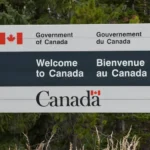
If you are planning to come to Canada as an international student, please gather here for these 5 key things I want to tell you.
Many students get to Canada before they find out, and land in “trouble”. So, I want you to avoid anything that can affect your status here.
1) Go to a school (Designated Learning Institution) and do a program that is eligible for Post Graduation Work Permit (PGWP)
We say this all the time, but many people still fall for Agents who just want to lead them into the wrong programs and get them into schools that are not eligible for a work permit after graduation. The students often get to Canada before knowing they were misled.
To get a PGWP both your school and the program you are doing in the school must be eligible for a PGWP.
Check if the school is eligible for a PGWP here. And if you are unsure whether your program is also eligible for PGWP, reach out to the school to confirm. This is very very important.
Also, the length of the program you do will determine the length of your PGWP, so prepare ahead and know your options. You can read more about PGWP here.
Avoid Agents saying you should go to a school without PGWP, and promising that they will look for an employer to sponsor you for an open work permit after school. It’s NOT easy and as straightforward as they claim.
Without a PGWP, you will be competing for jobs with those who already have a work permit and do not need to get an employer to sponsor them. Many employers will go for them before considering you (because that saves them the cost of your LMIA sponsorship). So, avoid the STRESS!
You are also not going to the schools for free, so why would you want to put your money into an unprofitable business? Think about it.
In addition to this, IRCC has also confirmed that international graduates of college programs delivered through a public-private curriculum licensing arrangement would no longer be eligible for a post-graduation work permit. This change will take effect on May 15, 2024, rather than the previously announced date of September 1, 2024. This means that international students who begin this type of program on May 15, 2024, or later will not be eligible for a post-graduation work permit when they graduate.
Details are available here.
2) When can you start working in Canada?
Please, have genuine money to get started with your education as an international student! Don’t come empty-handed, you need as much as possible soft landing to start your journey. And having money helps you to do that.
Have funds to spend in the first few weeks/months of your program. You can only work legally when your program has started. If you enter (before resumption), with the hope to hustle to spend before school will start, you are NOT permitted to work legally.
I know this is tough to hear, but don’t break that law, the consequences may be SEVERE!
You can read more about the conditions of working in Canada as a student here.
It is also less stressful when the work you are doing is to save and cover future costs. This is why I always recommend that students should at least, have liquid funds for tuition, rent, and other expenses in their first term (that’s like your first 4 months in Canada).
Why is this important? Tuition and rent are due as you arrive in Canada, so, having first-term fees will reduce the pressure on you.
Prepare to avoid being stranded.
3) How many hours can you work as a student?
As a student can only work for 20 hours per week OUTSIDE school. This is whenever school is in session and you are taking classes. And you can work full time during scheduled breaks.
But you know what is also interesting? Canada made this so generous that even with the 20 hours of work that you can do OUTSIDE your school, you can still work INSIDE school. The job you do INSIDE school does not count as part of your 20 hours of work hours whenever school is in session.
You can read more about this here. Don’t violate that!
4) Changing School/program after arriving in Canada
Yes, you can change your school/program, or defer the start date of your program after getting to Canada.
Please note that you cannot defer school because you want to work first and start school later. Number 2 above explained why. You are only allowed to work after your program has started.
If you want to change school entirely, ensure you are doing that AFTER you have arrived in Canada. This would mean that you already have the second admission or working on securing that before you arrive in Canada (so you can change schools immediately after you enter Canada and get your study permit).
You must also inform IRCC that you have changed your school through your IRCC application portal. The process to follow is explained here.
If you change school after your visa has been approved, and BEFORE you arrive in Canada, you will have to apply for a new study visa all over again! This is because you are still outside Canada when you changed school. Detailed information on this is available here. Avoid this as much as possible.
If you are deferring the start date of your program after arriving in Canada, this must be approved by your school, and they must have genuine reasons for it. This is important because as a foreign student, you MUST be enrolled and actively studying at all times. But your school can grant you a study leave (that is NOT more than 150 days).
There are many reasons why a student may request study leave. And this is explained in Section D here.
5) Know when to renew, extend, or change your status
This is very very important. Some students may need to renew their passports and visas, extend their study permits, or change their status in Canada. So, keep the expiration date of your visa/permit in mind always.
The law requires you to remain in valid status always and recommends that you submit an application for visa/permit extension at least 30 days before the expiration of the current one.
This is to allow enough time for your visa to be renewed before the current one will expire, or so that you are covered by maintained status.
It is also never too early to stay planning how to become a permanent resident in Canada ahead if that is of interest to you. There are various options for permanent residency in Canada, so go through the various resources we have on that here.
Lastly, remember you are a temporary resident as a study permit holder. You have a long way to go. Don’t let any short-term gain rob you of long-term benefits in Canada. IRCC may not say anything immediately, but they know where to wait for you.
I wish you all the best in your study in Canada!
If you’re new on the study in Canada journey and don’t even know how to start, check the resources we have here.
All the information you need to apply for admission, scholarships, and a visa in Canada is already there. It’s a Do It Yourself (DIY) community.
If you have questions on Career & Personal Development, Personal Finance, or Building a Personal Brand and want to reach out to us, check what we have here.
DISCLAIMER: The posts and information on this website are not legal advice. We are not Canadian Immigration Consultants and do NOT provide Canadian Immigration Services. For any authorized Canadian Immigration information, services, or support, please check the Government of Canada website at www.canada.ca/immigration
© Olu of Canada






Your content is always inspiring
Thanks for this vital information. Pls can someone who has gotten 2 year student visa, immediately apply for PR on getting to Canada if he already has WES evaluation and ielts good band?
What is the chance of getting it approved quickly over people outside Canada?
Yes, you can make a PR application as long as you are eligible. Processing time depends on many factors but it is usually faster for those within Canada.
Thank you sir for this information. How can I get you on YouTube? Thank you God bless.
I don’t have a Youtube account.
How do I get me and my family to Canada we are both HND graduates,mass communication students
Good day,
Please I’d like to find out if obtaining a student loan for a 2-year program is healthy so as to focus on living expenses et al.
Kindly advise reputable Int’l loan bodies one can use and also if there are disadvantages.
NB: Admission in place.
Thank you.
My advice about student loans is to make it your last resort. Explore other means of funding your study first, and go for loans if nothing is forthcoming. But also negotiate a good interest rate and flexible payment method that will not put you under undue pressure. Mpower finance is one of the popular student loan options for international students. And they have specific schools they work with. All the best.
Sir, I applied for visa October hoping that I will resume January because I have been given admission, I went for my medicals upfront and my xray is not clear. I have done other test and told to come back after 10 weeks which means my school will have resume. What can I do next, I’m thinking of defering my admission to may and probably apply for my spouse as dependant. Kindly advice me on how to go about it. Thanks so much.
From Lizzie
Defer your admission so you have enough time to sort things out.
Thank you so much for the vital information MR olu God will continue to bless you … if I change school when am in Canada, will the former school refund me or send my tuition deposit and 1semester fee to the new school .. I will be expecting your response, because am actually planning to do this .. thank you sir
The old school won’t send your tuition to the new school. Please check their refund policy to know if you will get a refund or not.
Thank you for all you do!!!!